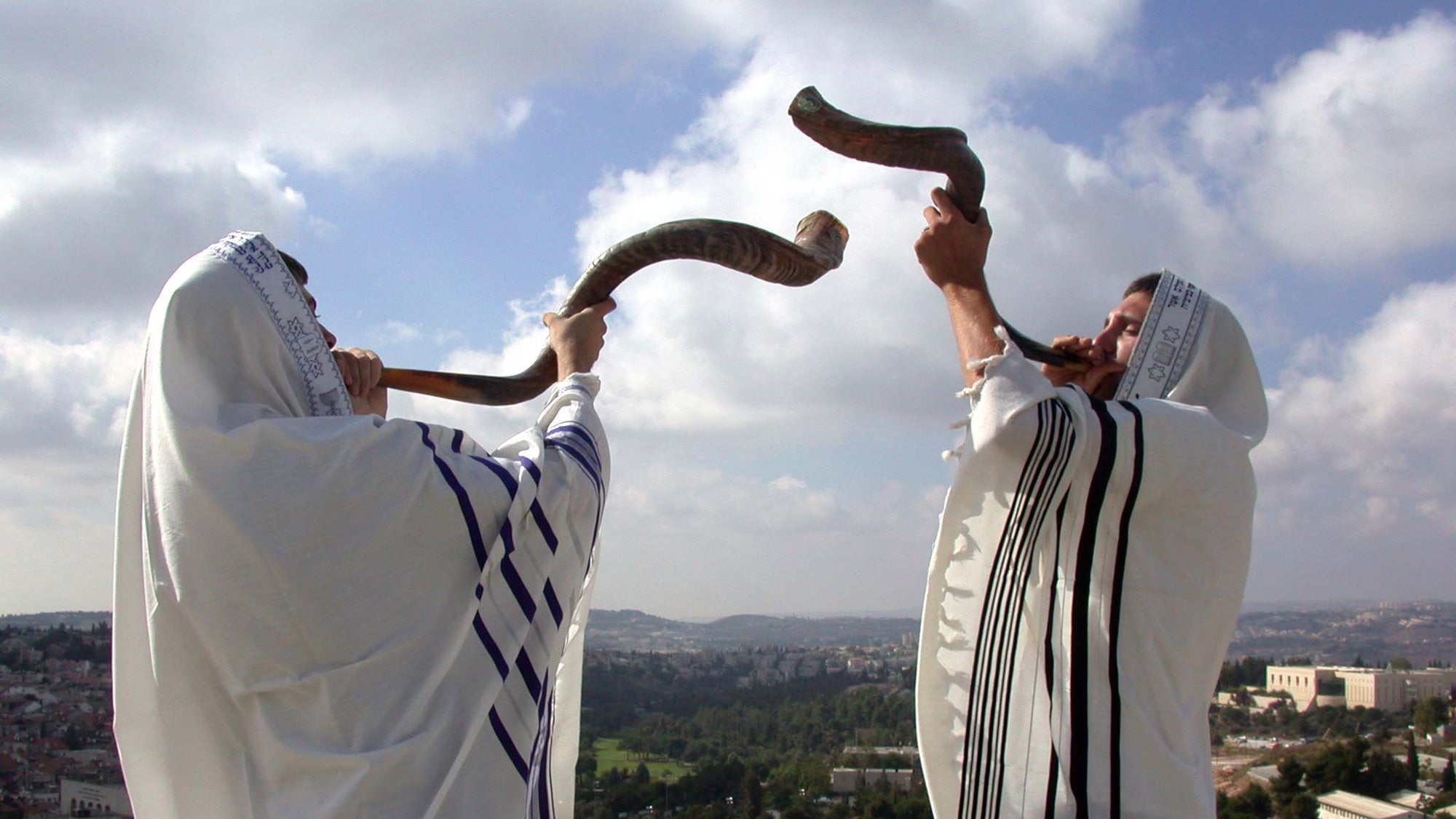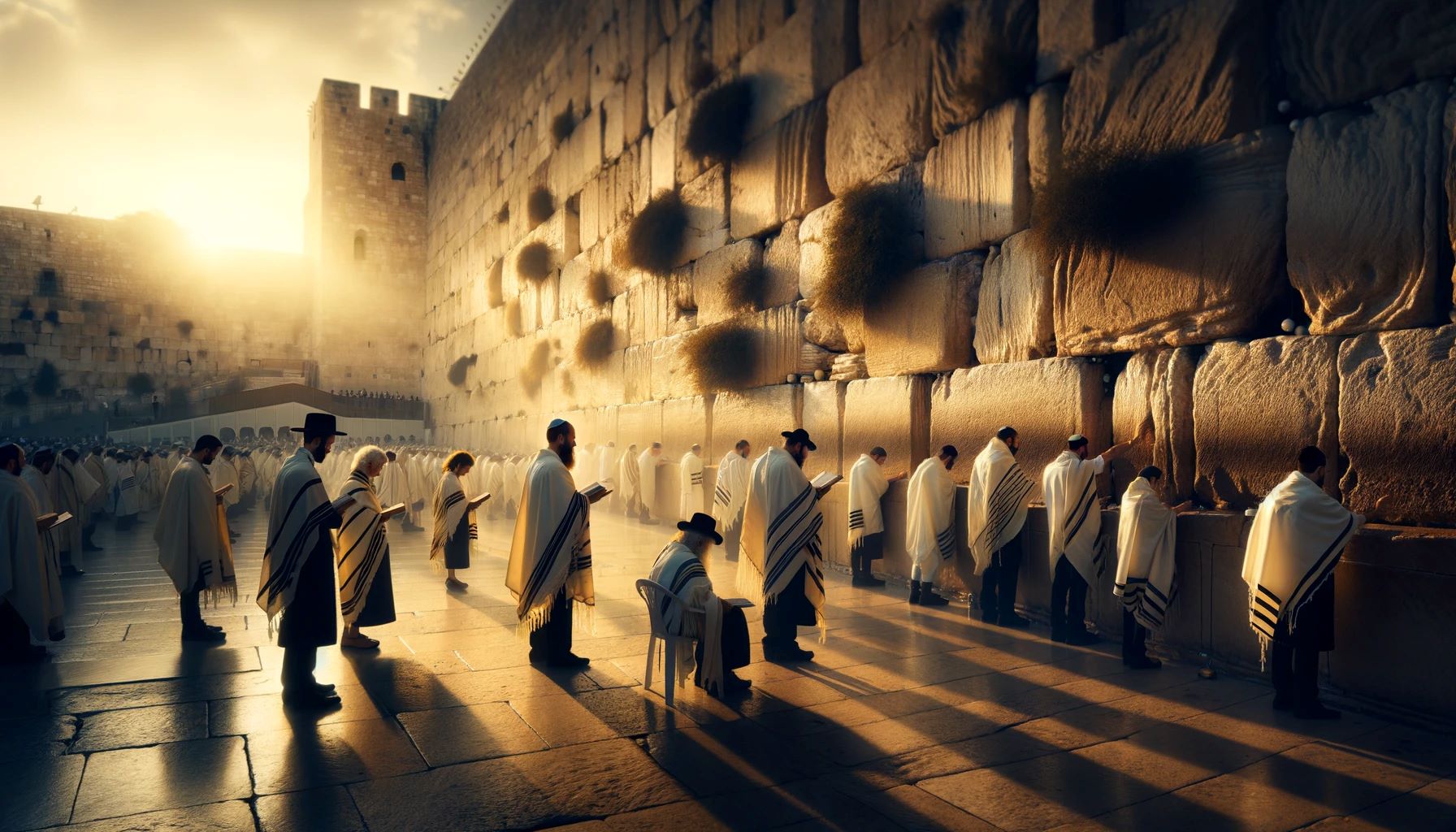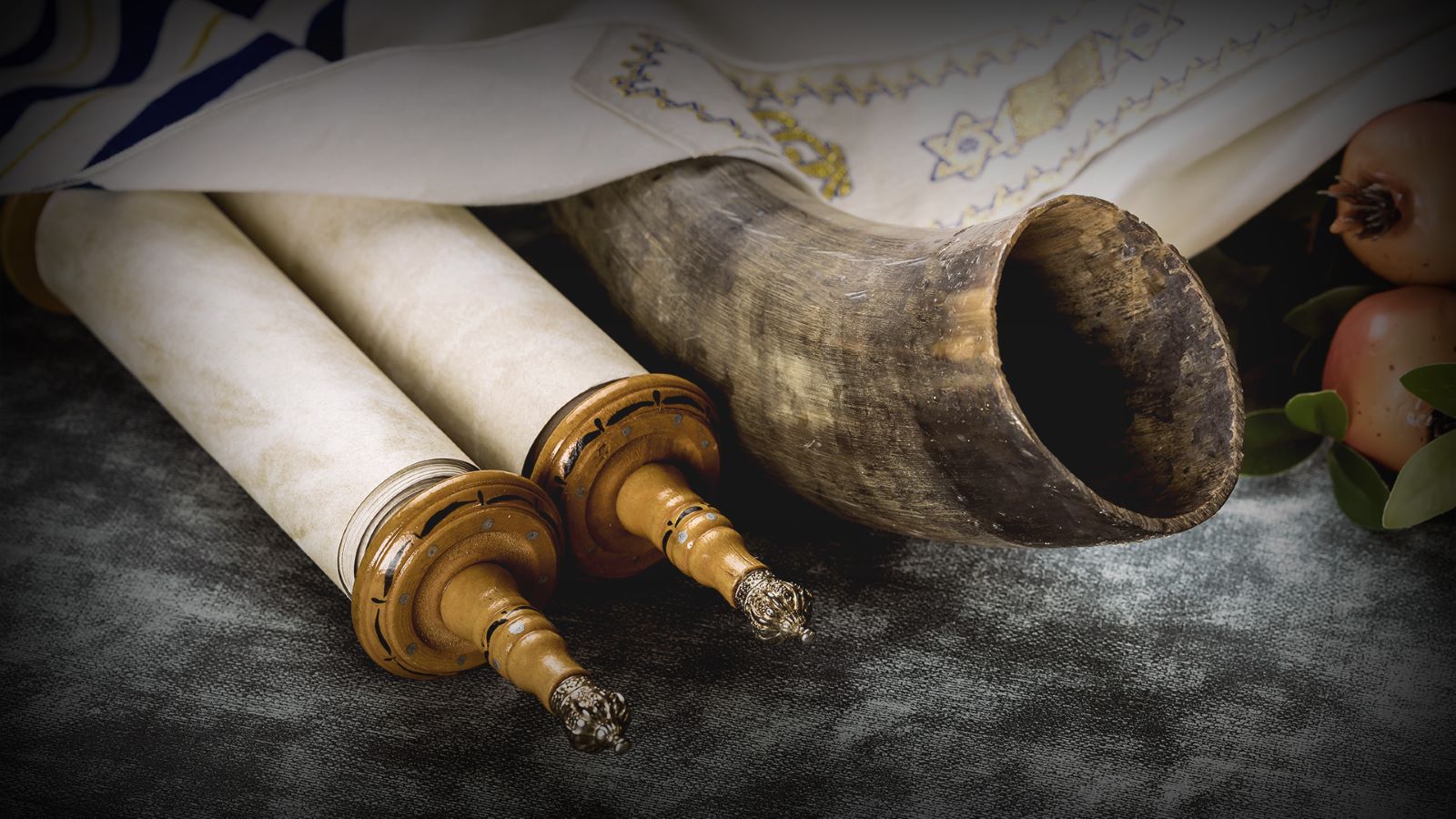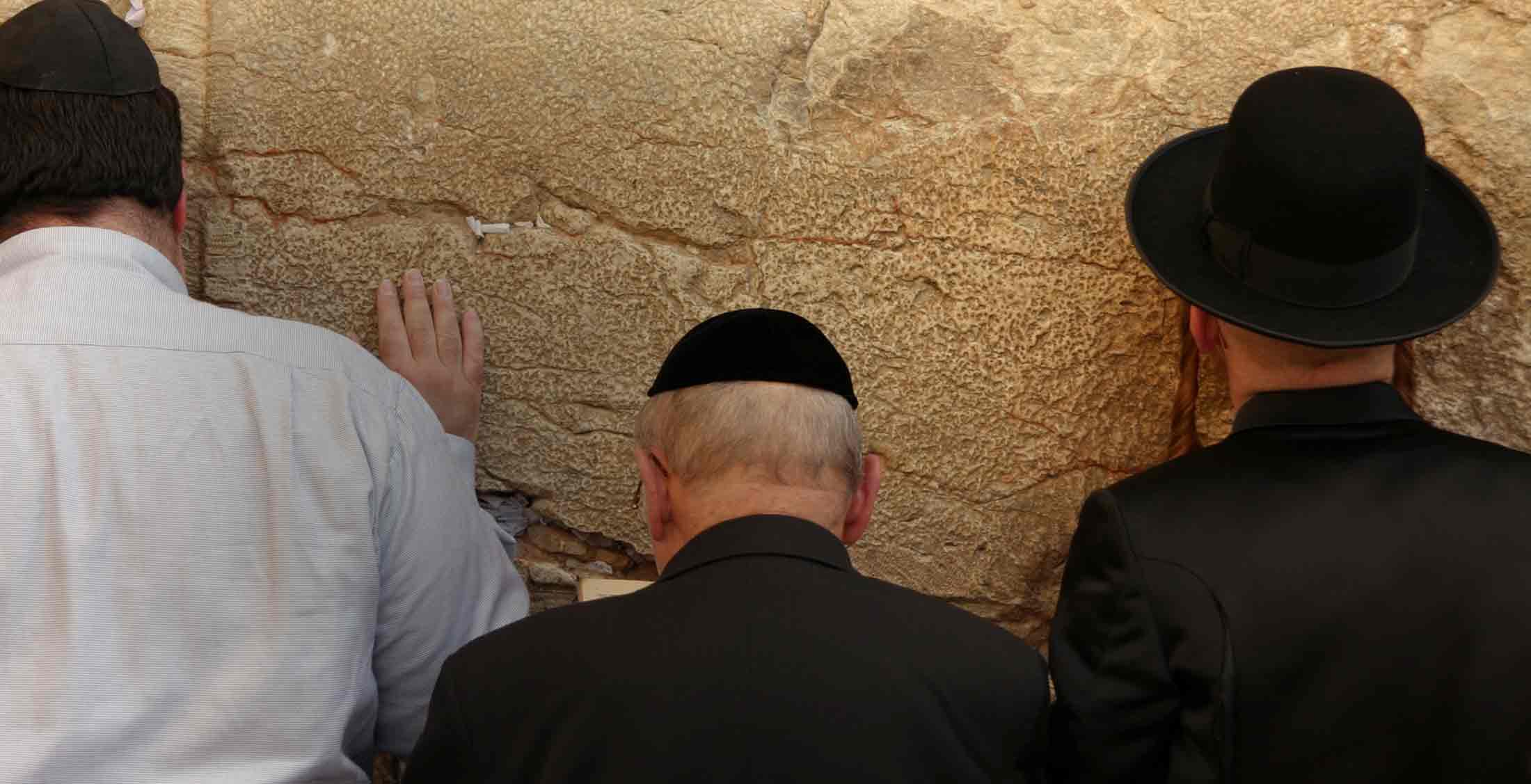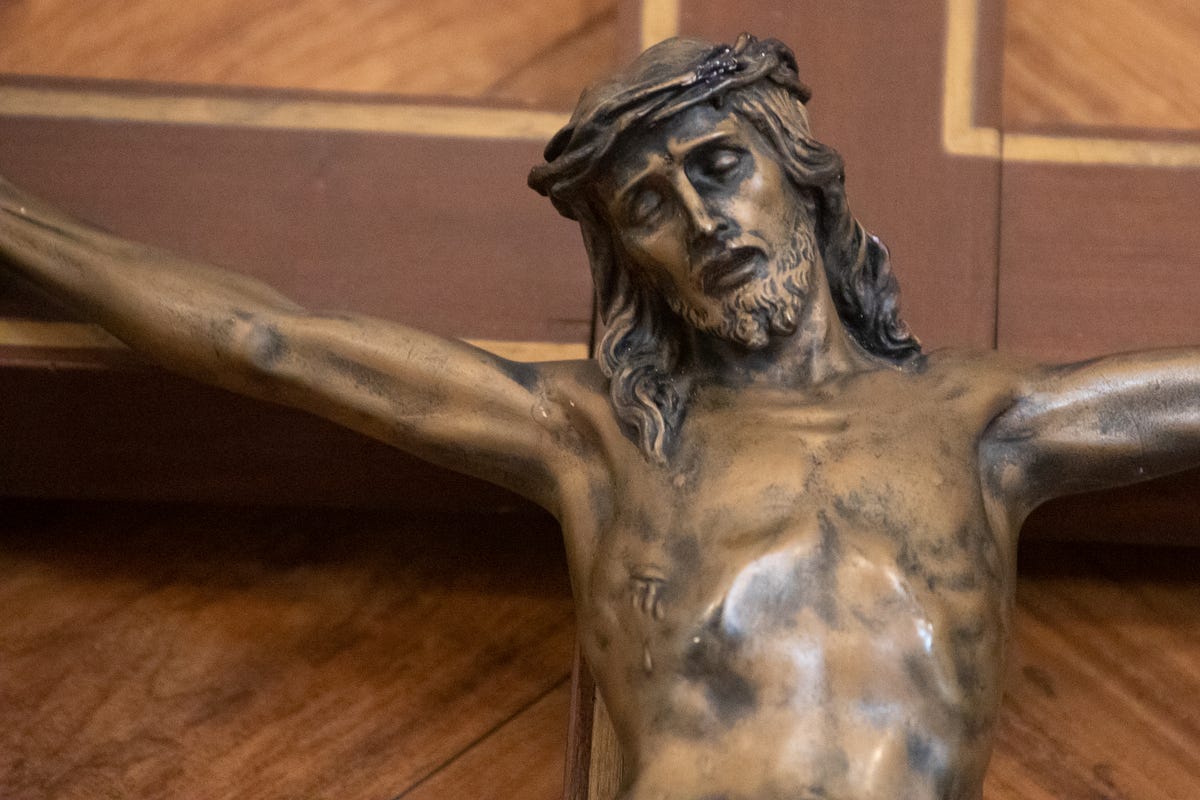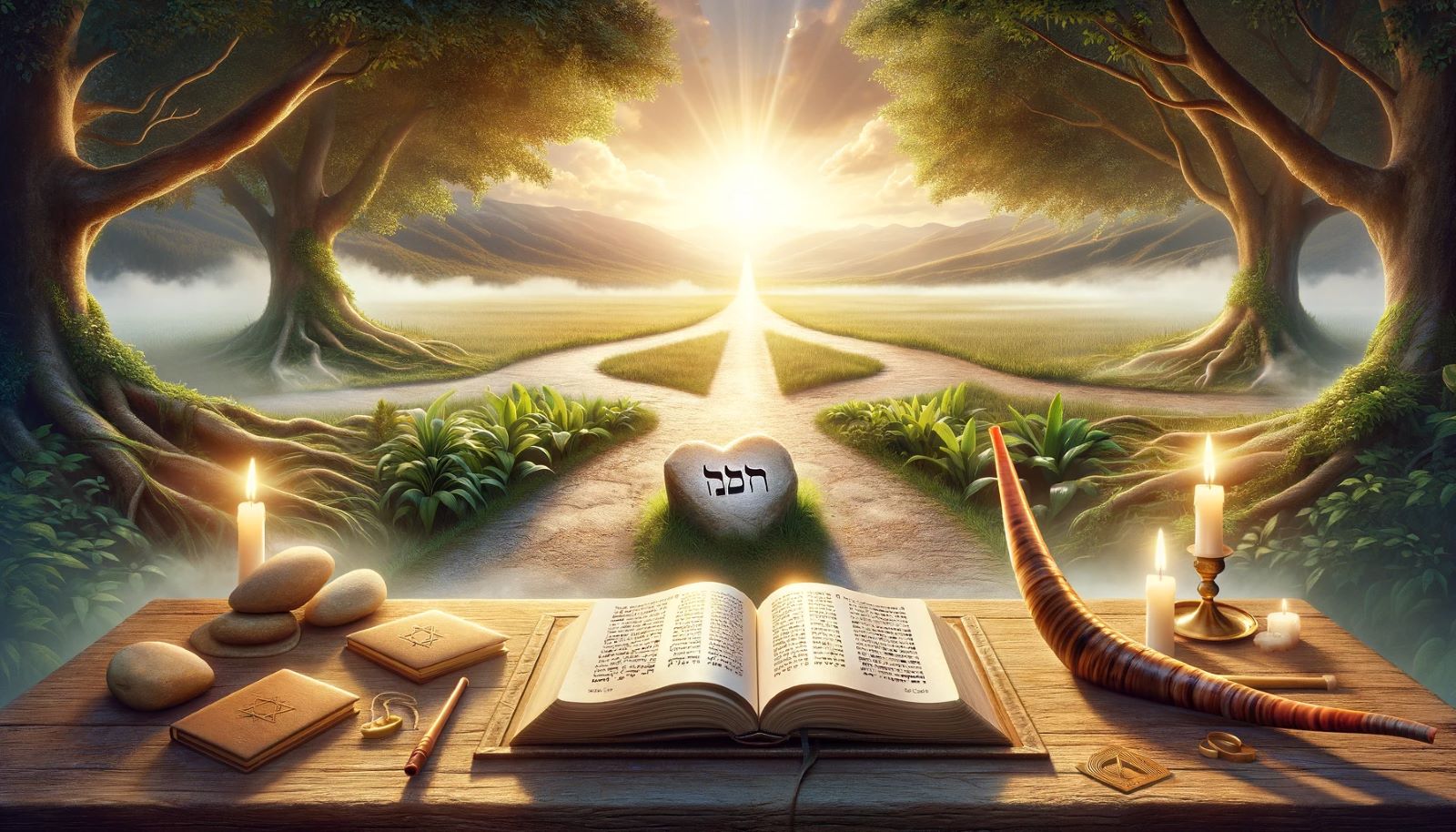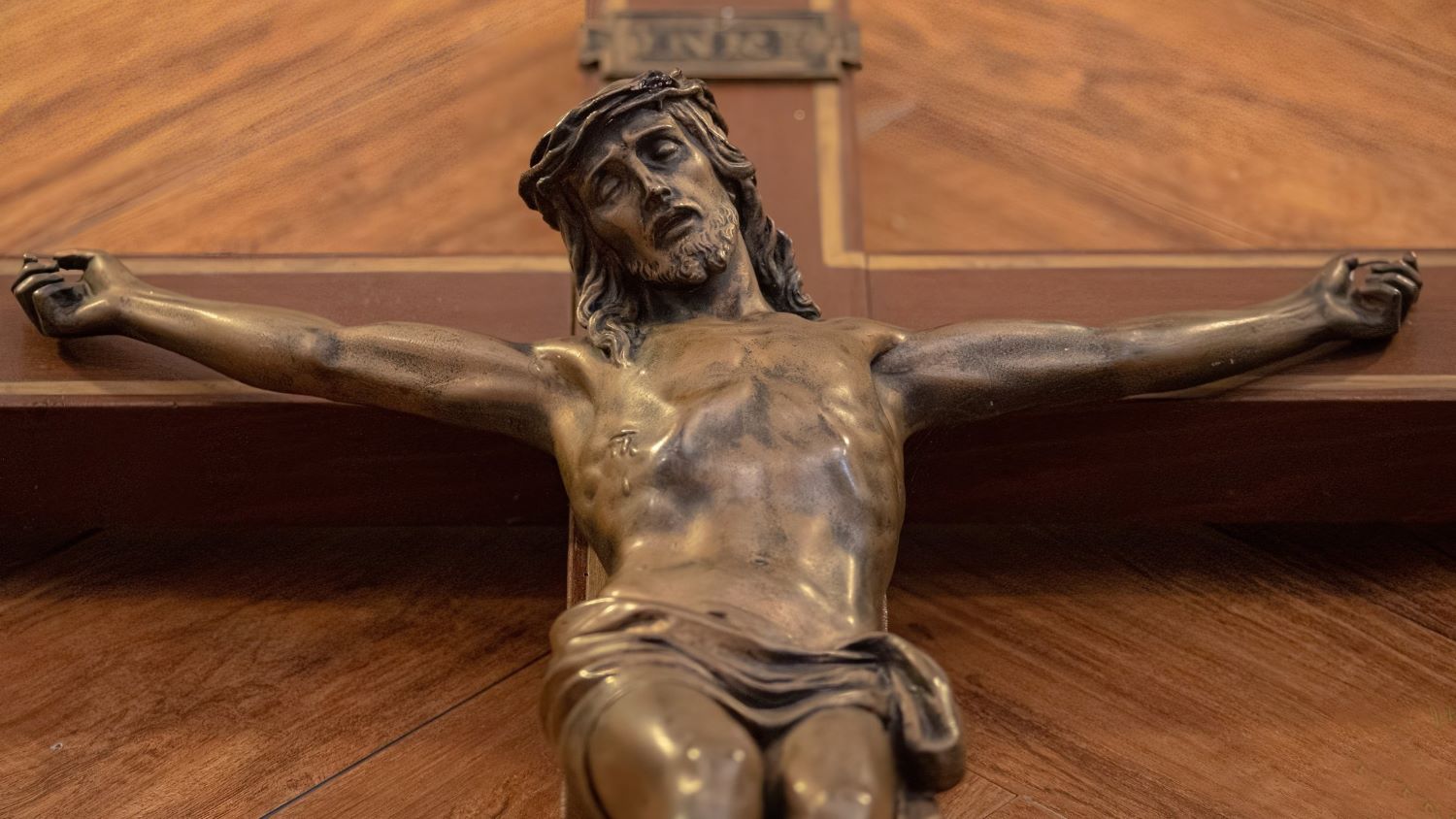Home>Theology and Spirituality>What Do You Do On The Day Of Atonement


Theology and Spirituality
What Do You Do On The Day Of Atonement
Published: February 9, 2024
Ericka Andersen, an editor at Christian.net, expertly merges digital strategy with content creation, focusing on faith and societal issues. Her communication skills enhance the platform's engaging narratives, fostering meaningful dialogue on belief's impact on society.
Discover the significance of the Day of Atonement and its practices in theology and spirituality. Learn about the rituals and traditions observed on this sacred day. Explore the spiritual significance of the Day of Atonement.
(Many of the links in this article redirect to a specific reviewed product. Your purchase of these products through affiliate links helps to generate commission for Christian.net, at no extra cost. Learn more)
Table of Contents
Introduction
The Day of Atonement, also known as Yom Kippur, holds profound significance in the Jewish faith and is observed with solemnity and introspection. It is a day of repentance, forgiveness, and spiritual renewal, marking the culmination of the Ten Days of Repentance that begin with Rosh Hashanah, the Jewish New Year.
Yom Kippur is considered the holiest day in the Jewish calendar, a time for individuals to seek reconciliation with both God and fellow human beings. The observance of this sacred day is rooted in ancient traditions and carries deep spiritual meaning for Jewish communities around the world.
As we delve into the essence of the Day of Atonement, we will explore its historical and religious significance, traditional practices, and the relevance of this solemn occasion in modern times. This exploration will provide insight into the enduring relevance of Yom Kippur and its enduring impact on individuals and communities.
Read more: What Is A Day Of Atonement
Understanding the significance of the Day of Atonement
The Day of Atonement, Yom Kippur, holds profound significance within Judaism, representing a time of introspection, repentance, and spiritual cleansing. It is a day when individuals seek forgiveness for their transgressions and strive to reconcile with both God and their fellow human beings. The concept of atonement, or "at-one-ment," underscores the aspiration to restore harmony and alignment with divine principles and moral values.
Yom Kippur is rooted in the biblical narrative, specifically in the book of Leviticus, where it is described as a day of fasting and self-denial. The rituals and practices associated with this sacred day are deeply symbolic, reflecting the themes of purification, renewal, and seeking divine mercy. The overarching goal is to achieve spiritual purification and reconciliation, both on a personal level and within the community.
The significance of Yom Kippur extends beyond individual introspection; it encompasses the collective responsibility of the Jewish community to acknowledge and rectify communal transgressions. This communal aspect underscores the interconnectedness of individuals within the community and the shared commitment to upholding ethical and moral standards.
Furthermore, the Day of Atonement serves as a reminder of the inherent capacity for transformation and renewal. It emphasizes the belief in the possibility of personal and collective redemption, regardless of past actions or shortcomings. This message of hope and renewal resonates deeply within Jewish tradition, offering a path to spiritual growth and moral elevation.
In essence, the significance of the Day of Atonement lies in its capacity to inspire self-reflection, accountability, and the pursuit of spiritual wholeness. It underscores the timeless values of repentance, forgiveness, and the enduring belief in the potential for personal and communal transformation. As we delve deeper into the observance of Yom Kippur, we gain a profound appreciation for its enduring relevance and the profound impact it continues to have on individuals and communities worldwide.
Observing the Day of Atonement in traditional Jewish practice
In traditional Jewish practice, the observance of the Day of Atonement, or Yom Kippur, is characterized by a profound sense of solemnity and spiritual introspection. The rituals and customs associated with this sacred day are deeply rooted in ancient traditions, carrying forward the rich tapestry of Jewish heritage and faith.
The observance of Yom Kippur commences with Kol Nidre, an evocative liturgical chant that signifies the beginning of the solemn 25-hour period of fasting and prayer. The haunting melody of Kol Nidre sets the tone for introspection and repentance, evoking a sense of humility and contrition among the worshippers.
Central to the traditional observance of Yom Kippur is the practice of fasting, refraining from all forms of sustenance, including food and drink, from sundown to sundown. This act of self-denial serves as a physical and spiritual discipline, symbolizing a detachment from worldly concerns and a heightened focus on spiritual matters.
The synagogue becomes the focal point of communal worship during Yom Kippur, with extended prayer services that encompass the evening, morning, and afternoon. The liturgy is imbued with themes of repentance, forgiveness, and the solemn plea for divine mercy. The recitation of the Vidui, or confessional prayers, underscores the acknowledgment of personal and communal transgressions, fostering a spirit of accountability and contrition.
Another significant aspect of traditional observance is the practice of wearing white garments, symbolizing purity and spiritual renewal. The act of donning white attire underscores the aspirational pursuit of moral and ethical elevation, reflecting the desire to embody virtues of humility, compassion, and righteousness.
The sounding of the shofar, a ceremonial ram's horn, marks the culmination of Yom Kippur, signifying the completion of the day of atonement and the hope for a new beginning. This resonant and ancient tradition carries profound symbolism, evoking a sense of spiritual awakening and the promise of divine forgiveness.
In essence, the traditional observance of Yom Kippur embodies a tapestry of rituals, prayers, and customs that encapsulate the timeless values of repentance, forgiveness, and spiritual renewal. It serves as a testament to the enduring resilience of Jewish tradition and the profound significance of seeking atonement within the framework of communal worship and individual introspection.
Observing the Day of Atonement in modern times
In contemporary society, the observance of the Day of Atonement, or Yom Kippur, continues to hold profound significance within Jewish communities, albeit with nuanced expressions and adaptations reflective of modern lifestyles and cultural dynamics. The enduring relevance of Yom Kippur in modern times is manifested through a blend of traditional rituals and contemporary interpretations that resonate with the evolving spiritual needs of individuals and communities.
One notable aspect of observing Yom Kippur in modern times is the integration of technology to facilitate communal worship and engagement. Many synagogues now offer live streaming of Yom Kippur services, allowing individuals to participate in prayer and reflection from diverse locations. This technological adaptation enables a broader spectrum of individuals to partake in the sacred observance, transcending geographical barriers and fostering a sense of collective unity.
Moreover, the contemporary approach to Yom Kippur embraces inclusivity and accessibility, accommodating diverse segments of the Jewish community, including young adults, families, and individuals with varying levels of religious observance. Synagogues and communal organizations often organize innovative programs and discussions centered on the themes of repentance, forgiveness, and ethical introspection, catering to the spiritual needs of a broad demographic.
In addition, the modern observance of Yom Kippur reflects an emphasis on social justice and ethical activism, aligning with the prophetic call for righteousness and compassion. Many Jewish communities use this sacred day as an opportunity to engage in charitable initiatives, community service projects, and advocacy for societal change. This proactive approach underscores the contemporary relevance of Yom Kippur as a catalyst for social consciousness and ethical engagement, transcending the confines of traditional rituals to address pressing global concerns.
Furthermore, the contemporary landscape of Yom Kippur observance encompasses diverse expressions of spiritual introspection, including personal meditation, mindfulness practices, and engaging in meaningful dialogue with peers and mentors. This individualized approach resonates with the evolving spiritual sensibilities of modern adherents, fostering a deeper personal connection to the themes of repentance, forgiveness, and moral accountability.
In essence, the observance of Yom Kippur in modern times reflects a dynamic tapestry of tradition, innovation, and inclusive spirituality. It embodies the enduring relevance of this sacred day in addressing the spiritual yearnings and ethical imperatives of contemporary society, underscoring the timeless values of atonement, reconciliation, and the pursuit of a more just and compassionate world.
Personal reflections and practices on the Day of Atonement
On the Day of Atonement, I am enveloped in a profound sense of introspection and spiritual contemplation. It is a time when I engage in deep personal reflection, seeking to reconcile my actions and intentions with the values and principles that guide my life. The essence of Yom Kippur permeates my consciousness, prompting me to embark on a journey of self-examination and moral inventory.
One of the central practices that define my observance of Yom Kippur is the act of sincere introspection. I dedicate uninterrupted moments to introspective meditation, delving into the depths of my conscience to identify areas where I may have fallen short, whether in my relationships, ethical conduct, or personal growth. This process of introspection serves as a catalyst for acknowledging my imperfections and embracing a spirit of humility and accountability.
Fasting during Yom Kippur assumes a profound significance in my personal observance. The act of refraining from sustenance serves as a physical manifestation of my commitment to spiritual discipline and self-denial. It fosters a heightened awareness of the spiritual dimensions of the day, allowing me to transcend the mundane and focus on the pursuit of spiritual wholeness and renewal.
Engaging in acts of repentance and seeking forgiveness from those whom I may have wronged is an integral aspect of my personal practice on Yom Kippur. I approach this process with a genuine desire to mend relationships, express remorse, and seek reconciliation. This transformative journey of seeking and granting forgiveness embodies the essence of Yom Kippur, fostering a sense of emotional healing and restoration.
Moreover, I embrace the opportunity for acts of kindness and charity as part of my observance of Yom Kippur. Engaging in acts of benevolence and extending compassion to others aligns with the ethos of the day, reinforcing the values of empathy, generosity, and social responsibility. These acts of kindness serve as a tangible expression of my commitment to ethical conduct and communal well-being.
In essence, my personal reflections and practices on the Day of Atonement are imbued with a profound sense of spiritual introspection, repentance, and ethical renewal. It is a time when I strive to embody the timeless values of humility, compassion, and moral accountability, seeking to align my actions with the noble aspirations of atonement and reconciliation.
Read more: What Is The Purpose Of The Day Of Atonement
Conclusion
The Day of Atonement, Yom Kippur, stands as a timeless testament to the enduring values of repentance, forgiveness, and spiritual renewal within the Jewish tradition. Its significance transcends the boundaries of time and space, resonating with individuals and communities across generations. As the sacred day draws to a close, its profound impact reverberates within the hearts and minds of those who have engaged in the solemn observance.
Yom Kippur serves as a poignant reminder of the human capacity for introspection and transformation. It beckons individuals to confront their fallibilities with courage and humility, embracing the journey of self-examination and moral realignment. The rituals and customs associated with Yom Kippur, both traditional and contemporary, offer a framework for individuals to seek reconciliation with their innermost selves, their fellow human beings, and the divine.
The communal aspect of Yom Kippur underscores the interconnectedness of humanity, emphasizing the collective responsibility to acknowledge and rectify transgressions, both on a personal and communal level. This communal introspection fosters a sense of unity and shared accountability, reinforcing the bonds that bind individuals within the community.
Moreover, the enduring relevance of Yom Kippur in modern times reflects its adaptive resilience, accommodating diverse expressions of spirituality and ethical engagement. The integration of technology, inclusive programming, and a proactive approach to social justice underscores the dynamic nature of Yom Kippur, aligning with the evolving spiritual sensibilities of contemporary society.
As the echoes of the shofar reverberate, signaling the conclusion of Yom Kippur, its enduring message lingers in the hearts of those who have engaged in the sacred observance. It resonates with the timeless yearning for spiritual wholeness, ethical elevation, and the pursuit of a more just and compassionate world. The essence of Yom Kippur transcends religious boundaries, offering profound insights and universal lessons that resonate with the human experience.
In conclusion, the Day of Atonement, Yom Kippur, stands as a beacon of hope, renewal, and reconciliation. Its enduring significance continues to inspire individuals to embark on a transformative journey of introspection, repentance, and the pursuit of spiritual atonement. As the sacred day concludes, its timeless message reverberates, kindling the flame of spiritual renewal and ethical awakening within the hearts of all who seek its profound wisdom.
